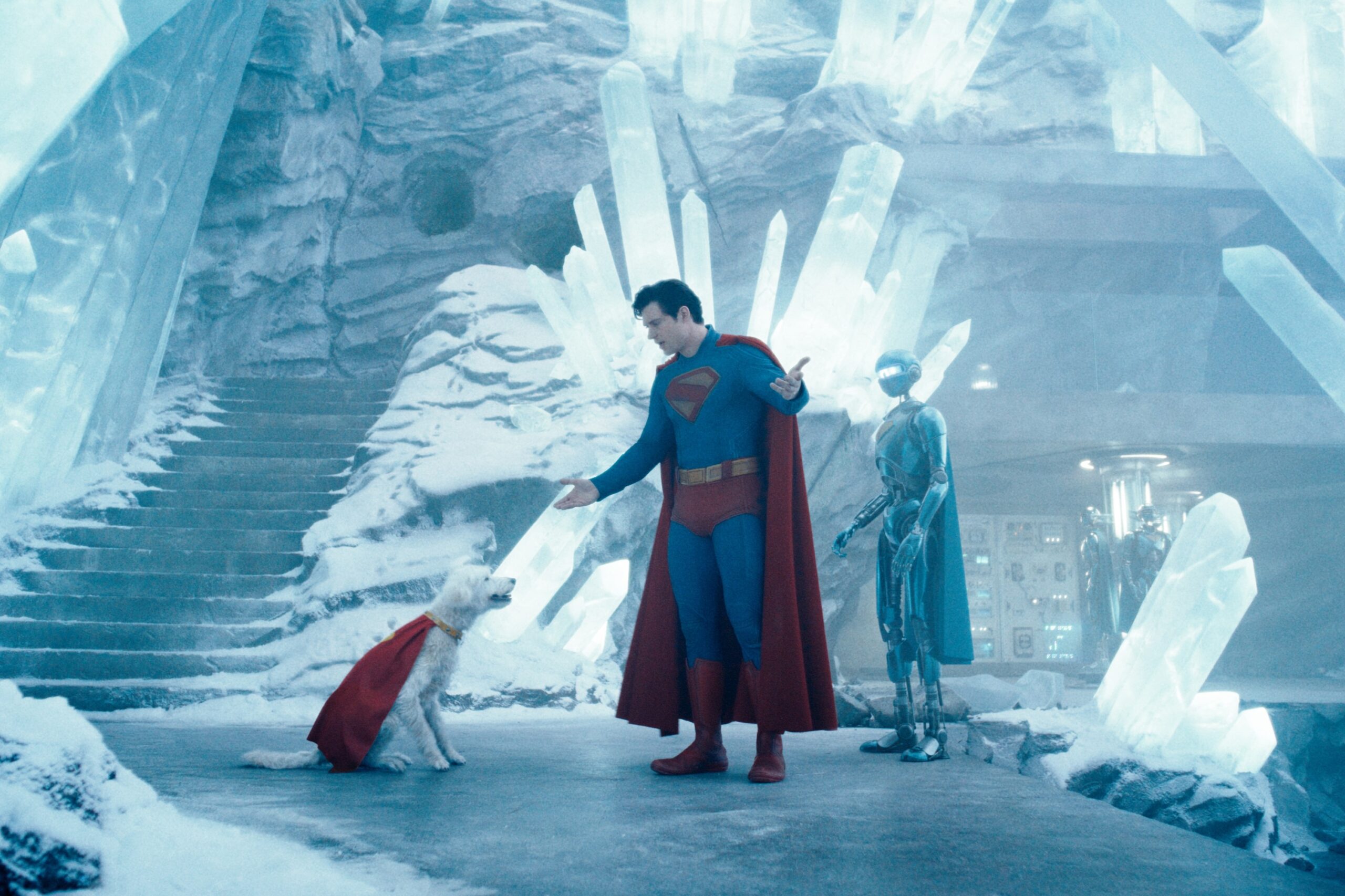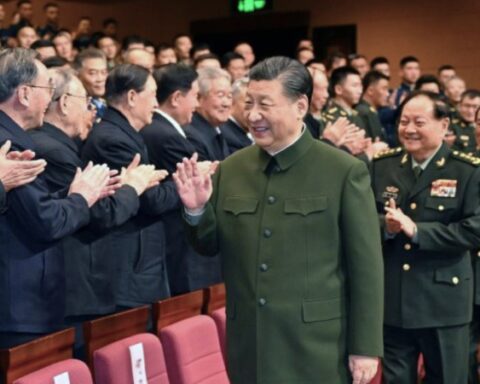Can an Übermensch still be an everyman in postliberal
Superman occupies a decisive place in American popular culture, for better or for worse. The character, who debuted in 1938, is usually credited as the first superhero, the beginning of a genre that now dominates not only comic books but Hollywood as well. In terms of mass culture, we’re living in the world Superman made.
This is why some conservatives reacted defensively when they thought James Gunn, director of this summer’s Superman film, was criticizing Donald Trump’s immigration policies by highlighting Superman’s immigrant origins. “I mean, ‘Superman’ is the story of America,” Gunn told the Times of London. “An immigrant that came from other places and populated the country, but for me it is mostly a story that says basic human kindness is a value and is something we have lost.”
In fact, Gunn’s movie is not very political by today’s standards, except in that its underlying philosophy reveals a great deal about the inability of modern liberals to confront what makes a character like Superman potentially interesting. Superman is a series of contrasts or outright contradictions—an alien from outer space who is the most human of humans; a being of irresistible power who is humble and just; a character brought up on a Kansas farm who moves to a big-city metropolis; a bulletproof hero who disguises himself as a “mild-mannered reporter.” Given the character’s significance to his genre, there’s also a contrast between Superman the original and Superman the mold from which a million other characters have been made.
Gunn makes a series of choices about these contrasts, and in almost every instance his choice is to subtract whatever makes Superman exceptional. The hero is one unit of a mass-produced commodity in this film, which is replete with other superhumans and features no fewer than four variations on Superman himself, including a super-dog and a superfluous cameo by the hero’s cousin with the same powers but of the opposite sex, Supergirl. Superman doesn’t seem much more powerful than the rest of the supercrowd, and he’s only distinguished from them by the fact that he won’t kill. That means the dirty work of putting down a Godzilla-scale monster smashing the city and a Slavic dictator invading a Middle Eastern country—no, that makes no sense, but this is comic-book geography—falls to other superpowered characters.
Weakness is the defining trait of Gunn’s Superman. The film begins with the Man of Steel lying bloodied and bruised in an Antarctic snowscape after falling from the skies. Later he’s literally powerless—deprived of his abilities by the strength-sapping element Kryptonite—when his archenemy Lex Luthor shoots a prisoner in the head while torturing him in a game of Russian roulette. (Superman is a childish movie, but with brutality like that, it isn’t made to be seen by children.) The hero has to be rescued more than once by his animal companion, and when Superman confronts Luthor at the film’s climax, he delivers a monologue assuring the envious villain that he, Superman, is only human, and he’s human because of his mistakes.
In place of a robust midcentury liberalism (whatever its faults), this not-so-Superman’s creed is bland sentimentality.
In a better film, that could be built up into a poignant resolution, an answer to the question of how a being as superior as Superman can live among mere mortals on terms of equality. In other media incarnations, Superman is explicitly a champion of “truth, justice, and the American way.” That phrase doesn’t occur in Gunn’s film. Yet Superman as a concept is only thematically credible in the context of the political setting that gave rise to him and sustained the character for most of his history. It’s a certain vision of “America” that makes a Superman imaginable within a democracy.
Superman is a product of the New Deal. His creators, Joe Shuster and Jerry Siegel, were Jewish teenagers from immigrant families (Shuster was a Canadian immigrant himself) who became friends and creative partners in Cleveland, Ohio. The origin they would eventually craft for Superman echoes the story of Moses, with a newborn placed not in a basket but in a rocketship and set adrift not on the Nile but among the stars, his destiny to bring righteousness to a new land. Coupled with the immigrant and Jewish aspects that contributed to the creation of Superman is a Middle American sensibility. The Ohio of Siegel and Shuster becomes Superman’s Kansas, where his rocket crashes and the alien child is adopted into an all-American family. What unites Superman’s contrasting elements—foreign and native, rural and urban—is a New Deal–era confidence in liberalism as a form of patriotism, with America itself as a Moses-like lawgiver unto the world yet still a place of its own.
Superman, like America, is all-powerful. And being all-powerful, Superman and America can afford to be idealistic. Superman doesn’t kill because with power as great as his killing is never necessary, much as liberals would come to see the death penalty as abhorrent in a land where well-meaning government and enlightened social science could overcome any antisocial threat. Although liberals would not become truly “soft on crime” until after the New Deal, the idea of beneficent power that Franklin Roosevelt’s administration represented pointed the way to ever more beneficence accompanying ever more power. The “golden age” comic book characters of the New Deal and World War II years were also more violent than those of the 1960s, and Superman himself reached his final form by stages. But the template of what was to come, for liberalism and the superhero alike, was set in the 1930s.
The prehistory of Superman suggests the limitations of that template, however. Before Siegel and Shuster created their superhero, they wrote and illustrated a 1933 science-fiction tale called “The Reign of the Superman” about a very different kind of superior being. The story involves a mad scientist performing an experiment that gives a lowly man superhuman intelligence and telepathic powers, which this “superman” intends to use to subjugate the human race. Serious literature and genre fiction alike had been exploring the implications of “supermen” and master races more evolved than humanity since the late nineteenth century. These tales were often warnings or tragedies, such as the 1930 novel that prefigured Siegel and Shuster’s superhero Superman in many ways, Philip Wylie’s Gladiator.
What made the comic-book Superman a defender of humanity rather than an outcast (like Wylie’s protagonist) or would-be conqueror (like Siegel and Shuster’s first sci-fi superman) was his assimilation into Kansas and America as the land of the free. But today’s left-liberals don’t think of Kansas or Middle America as metonyms for decency and simple goodness. Nor do they believe that assimilation is an ideal worth pursuing—identity politics instead prescribes maximum alienation from any traditional model of Americanism. An immigrant from the planet Krypton would today be told by activists in what was once the party of the New Deal that America is a place to be ashamed of and “truth, justice, and the American way” a contradiction in terms. Instead of confidence that American liberalism will overcome any foe at home or abroad, the modern left-liberal fears that fascism has already taken over this country.
Superman doesn’t make any sense in this context. But instead of taking this situation as a challenge, Gunn has resorted to making the most generic superhero movie possible. His characterless protagonist is defined by being unexceptional, and in place of a robust midcentury liberalism (whatever its faults), this not-so-Superman’s creed is bland sentimentality. That makes for a weak film: a Superman that shows how little is left of the spirit that made Superman possible in the first place.
At a time when the American right is also moving away from twentieth-century liberal ideals, turning away from globalism toward a Kansas First, Ohio First, America First perspective—and in the case of online “influencers” and transhumanist tech barons, turning away from equality and democracy in favor of seemingly Nietzschean “superman” values—a film that takes seriously the problem of reconciling the exceptional with the egalitarian and the patriotic with the universal would hold some merit just for asking the right questions. Even a comic book movie could do it. This one, however, exists only to sell popcorn.
Source: https://modernagejournal.com/supermans-political-problem/252003/






